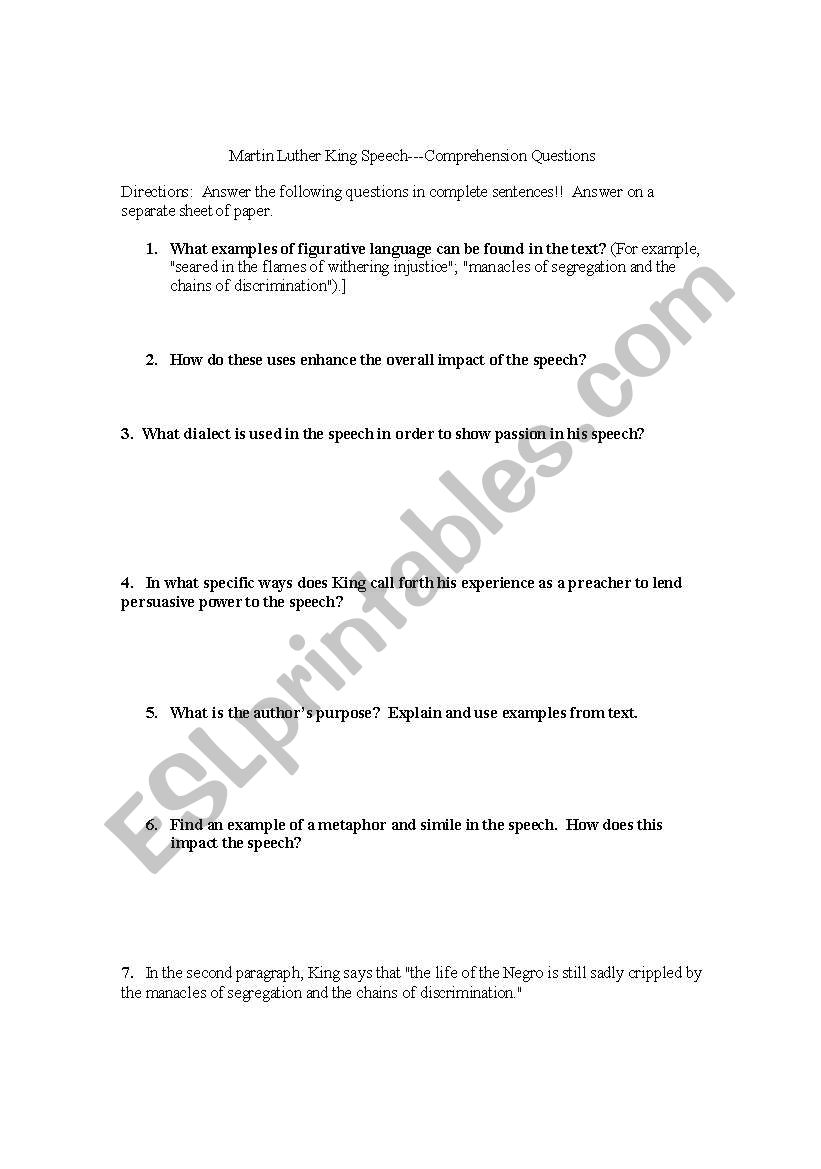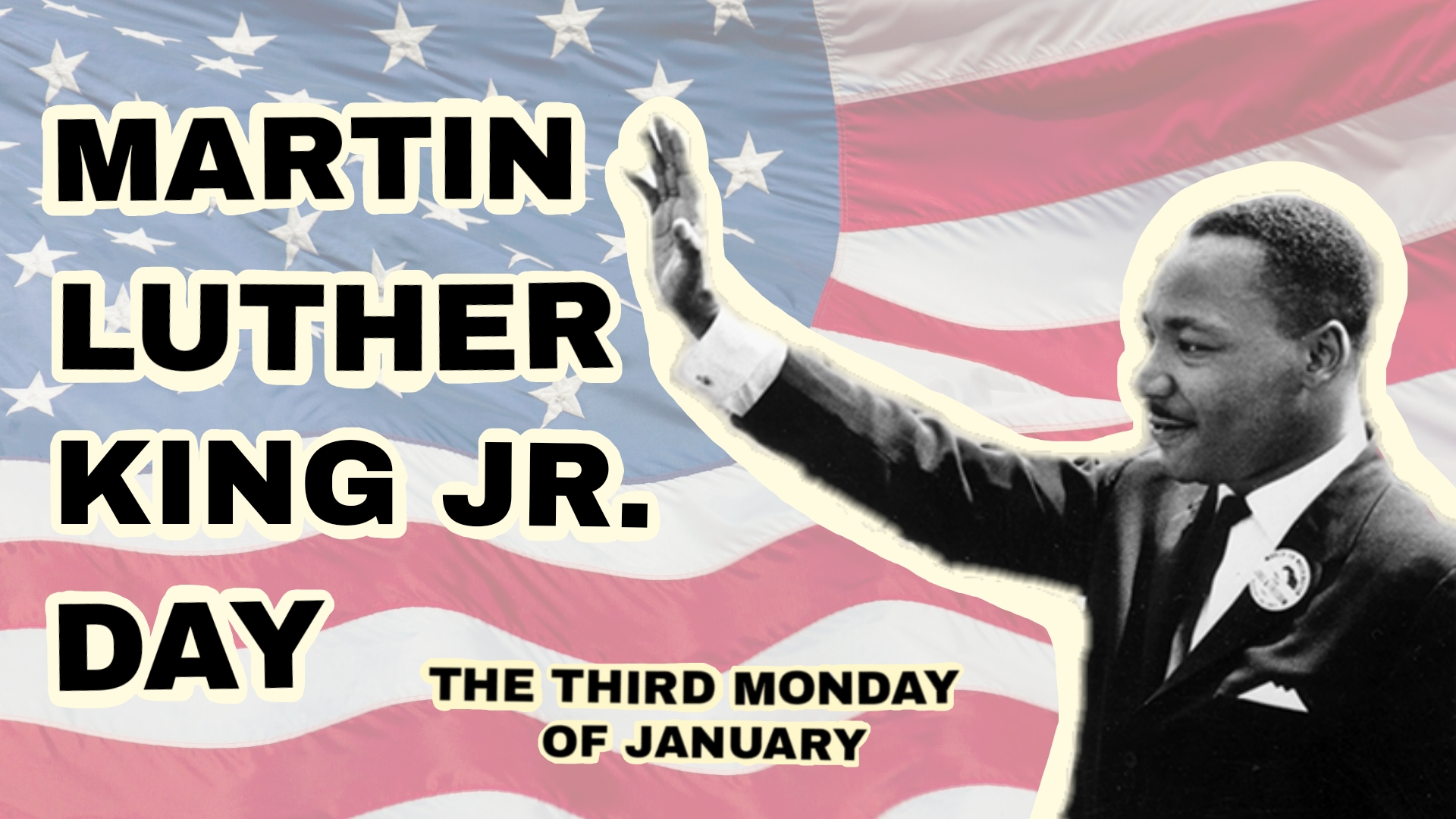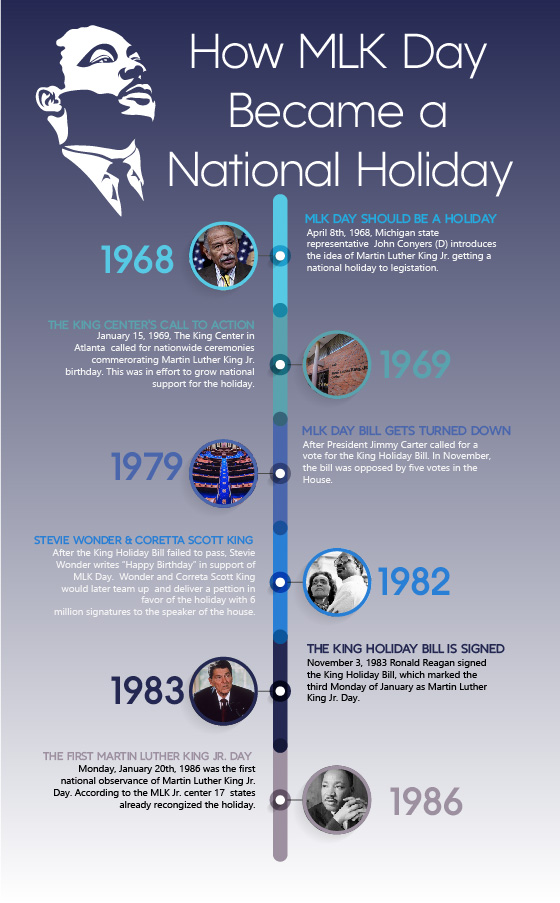Gallery
Photos from events, contest for the best costume, videos from master classes.
 |  |
 |  |
 |  |
 |  |
 |  |
 |  |
A comprehensive timeline of the life and legacy of Martin Luther King, Jr., from his birth in 1929 to his assassination in 1968. The timeline covers his education, activism, travels, awards, speeches, and family. Timeline of significant events related to Martin Luther King, Jr., who led the civil rights movement in the United States from the mid-1950s until his death in 1968. His leadership was fundamental to that movement’s success in ending the legal segregation of Blacks in the South and other parts of the United States. Sept. 13: King begins graduate studies in systematic theology at Boston University’s School of Theology. From boyhood to last days, King pursued equality. Voices: In the shadow of King's A comprehensive timeline of the life and legacy of Martin Luther King, Jr., from his birth in 1929 to his death in 1968. The chronology covers his family history, education, activism, awards, and assassination, as well as major events in the civil rights movement. He was awarded the Nobel Peace Prize in 1964 and is commemorated by the Martin Luther King, Jr. National Memorial in Washington, D.C. Learn more about Dr. King’s extraordinary accomplishments through our timeline of his life. The Martin Luther King, Jr. Research and Education Institute at Stanford University notes that the following are some of the major events of King's life. · January 15, 1929: Now commemorated annually as Martin Luther King, Jr. Day (in 2023, the holiday is observed on Monday, January 16), January 15 marks the day King was born in 1929. King forms the Southern Christian Leadership Conference to fight segregation and achieve civil rights. On May 17, Dr. King speaks to a crowd of 15,000 in Washington, D.C. The U.S. Congress passed the first Civil Rights Act since reconstruction. King’s first book, Stride Toward Freedom, is published. Explore the key events in Martin Luther King Jr.'s life, from his birth in 1929 to his pivotal role in the Civil Rights Movement and his assassination in 1968. Martin Luther King Jr. was a pivotal leader in the American civil rights movement. A Baptist minister, activist, and political philosopher, King championed equal rights for people of color from 1955 until his assassination in 1968. His leadership was rooted in the principles of nonviolent resistance and civil disobedience, strategies he employed to challenge discriminatory Jim Crow laws and Read a comprehensive biography of Martin Luther King, Jr.’s life, including major events, key people and terms, and important achievements. Martin Luther King, Jr., was a visionary leader and advocate for equality who spearheaded the civil rights movement in America through nonviolent protests, inspiring lasting change and leaving an enduring legacy. Martin Luther King, Jr. - Civil Rights, Nonviolence, Equality: In the years after his death, King remained the most widely known African American leader of his era. His stature as a major historical figure was confirmed by the successful campaign to establish a national holiday in his honor in the United States and by the building of a King memorial on the Mall in Washington, D.C., near the The legacy of Dr. Martin Luther King Jr. encompasses influential decisions, monumental actions and steadfast progressions of humanitarian rights that reach far beyond the civil rights movement. A leader of all people, Dr. King never chose fear, but always chose courage and determination when fighting for civil rights in the face of oppression Martin Luther King, Jr. was born at noon Tuesday, January 15, 1929, at the family home, 501 Auburn Avenue, N.E., Atlanta, Georgia. Dr. Charles Johnson was the attending physician. Martin Luther King, Jr., was the first son and second child born to the Reverend Martin Luther King, Sr., and Alberta Williams King. Martin Luther King was born Michael King Jr to Reverend Michael King and his wife Alberta in Atlanta, Georgia. He was the couple’s second child, his elder sister Christine had been born in 1927. 1930 (30th July) Martin Luther King Jr. was a Baptist minister and civil rights activist who had a seismic impact on race relations in the United States, beginning in the mid-1950s. Among his many efforts, King Martin Luther King Jr. Day is celebrated nationwide for the first time in 1986. This article appears in the special MLK issue print edition with the headline “The Arc of a Life.” About the Author During the less than 13 years of Dr. Martin Luther King, Jr.’s leadership of the modern American Civil Rights Movement, from December 1955 until April 4, 1968, African Americans achieved more genuine progress toward racial equality in America than the previous 350 years had produced. Martin Luther King, Jr. Timeline Timeline Description: Martin Luther King, Jr. was one of the most famous civil rights activists in history. He called for African Americans to respond to discrimination peacefully, no matter how much violence was brought on them. Martin Luther King Jr. timeline from 1929 to 1968. It includes his early life and education, speeches and writings. Also, his assassination and the persecution he suffered for his leadership of the Civil Rights Movement. DOWNLOAD Open & browse using Timeline Software.
Articles and news, personal stories, interviews with experts.
Photos from events, contest for the best costume, videos from master classes.
 |  |
 |  |
 |  |
 |  |
 |  |
 |  |